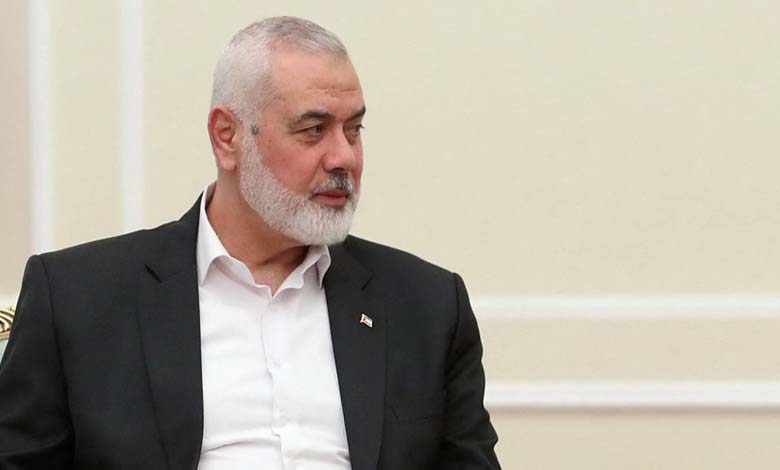Haniyeh’s Succession Tests Hamas’s Cohesion
The current context could influence Hamas's future more than the personality chosen to succeed Ismail Haniyeh.

The Shura Council of the Islamic Resistance Movement, Hamas‘s main advisory body, will soon meet to choose a new political leader to replace Ismail Haniyeh, the head of the movement’s political bureau, who was assassinated Wednesday in Tehran in a strike attributed to Israel. Haniyeh‘s succession tests Hamas‘s cohesion amid a conflict between the internal and external leaderships.
The current context could have a more significant impact on Hamas‘s future than the personality chosen to succeed Haniyeh, who took office in 2017, amid the ongoing war in the Gaza Strip following an attack launched by Hamas on October 7, 2023, in southern Israel.
Despite the emergence of moderate figures within the movement, Hamas remains committed to the uncompromising struggle for the establishment of a Palestinian state, particularly through armed resistance.
Tahani Mustafa from the International Crisis Group states that it would be “politically illogical” to expect Haniyeh‘s successor to lean towards flexibility with Israel. An internal source within the movement said that “relations with Arab and Islamic countries” will also be considered.
Among the main leaders who could be chosen is Khalil al-Hayya, the movement’s deputy head and close to Yahya Sinwar, Hamas‘s leader in Gaza, who Israel accuses of being one of the masterminds of the October 7 attack.
In 2006, Khalil al-Hayya led Hamas‘s bloc in the Legislative Council after the movement’s victory in the last Palestinian elections held since then, and armed clashes with the Fatah movement led by Mahmoud Abbas erupted shortly after.
Al-Hayya is one of the main supporters of the armed struggle to end the Israeli occupation and has survived several Israeli assassination attempts, particularly in 2007 when his house in northern Gaza was targeted, killing many of his family members.
Among the candidates for the position is Moussa Abu Marzouk, a well-known figure and one of the senior officials of the movement’s political bureau, who, like Haniyeh, adopts a pragmatic approach in negotiations, supporting a “long-term ceasefire” with Israel and accepting the 1967 Arab-Israeli war borders as the borders of the Palestinian state. However, this remains controversial within the movement.
When he resided in the United States in the 1990s, he was arrested for raising funds for Hamas‘s armed wing. He then remained in exile, notably in Jordan, Egypt, and Qatar. Each time the position is vacant, his name is mentioned among the potential successors to lead the movement.
Zaher Jabarin, who has long managed Hamas‘s financial affairs and was close to Haniyeh, to the point of being described as his right-hand man, is also among the candidates to succeed him.
Israel arrested Jabarin and released him in 2011 during a prisoner exchange between Palestinian detainees and the soldier Gilad Shalit, captured by Hamas and held for five years. He is close to Turkey, where he stayed for some time.
Jabarin recruited individuals for large-scale money laundering activities, two of whom were arrested in Israel in 2018, and he also participated in operations carried out by Hamas‘s armed wing.
Khaled Meshaal is also on the list of candidates to lead Hamas and has been living in exile since 1967, having resided in Jordan, Qatar, Syria, and other countries.
He was chosen as head of the movement’s political bureau after the assassination of Hamas founder Sheikh Ahmed Yassin by Israel, followed by his successor in the Palestinian territories, Abdelaziz al-Rantissi.
Meshaal himself survived an assassination attempt in 1997 in Amman, in an operation carried out by Mossad agents, the Israeli intelligence service.
When he lived in Syria, he criticized the Syrian regime for its violent repression of anti-government protests, straining his relations with Iran, Syria’s strategic ally and Hamas‘s main supporter.
Among the candidates to succeed Haniyeh is also Yahya Sinwar, elected in February 2017 as Hamas‘s leader in the Gaza Strip and a hardliner.
The austere 61-year-old man spent 23 years in Israeli prisons before being released in 2011 in a prisoner exchange.
-
In a message to the arabs… Sinwar reveals Hamas’s stance on Biden’s plan to end the Gaza War
-
Hamas has lost half of its fighters in the Gaza war
Sinwar was born in Khan Younis, in southern Gaza, and joined Hamas at its founding in 1987, the year of the first Intifada. He then founded “Majd,” Hamas‘s internal security apparatus.
He is the former commander of the al-Qassam Brigades, the movement’s military wing, and is sought by Israel as the mastermind of the October 7 attack. He is listed on the U.S. “international terrorists” list and keeps his movements extremely secret, not having been seen publicly since the war in Gaza began.












